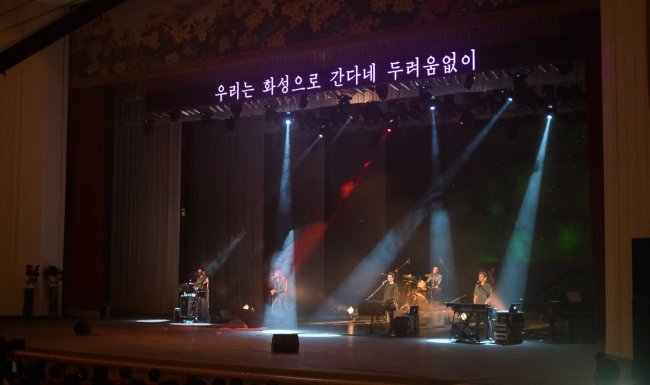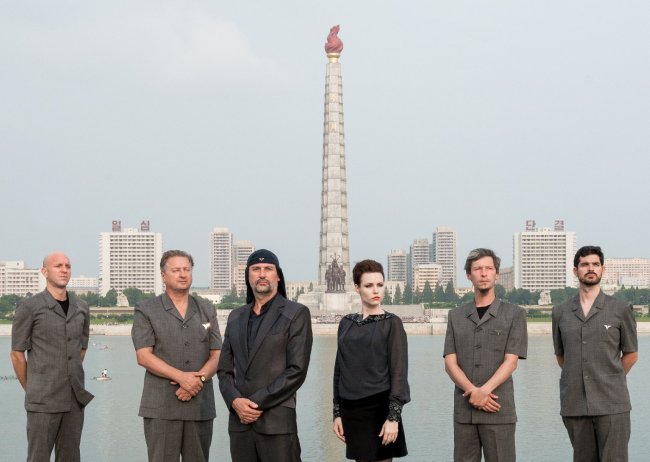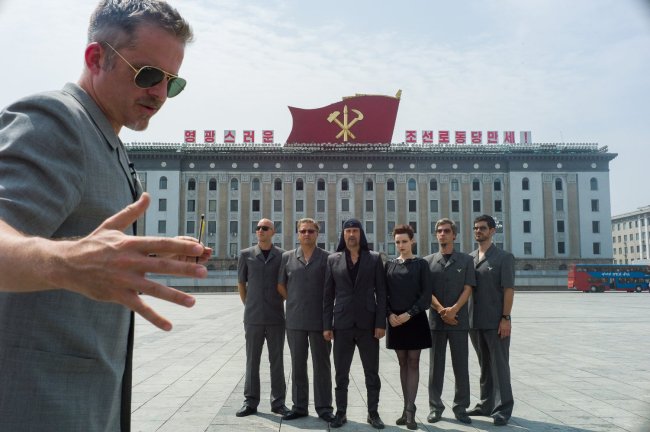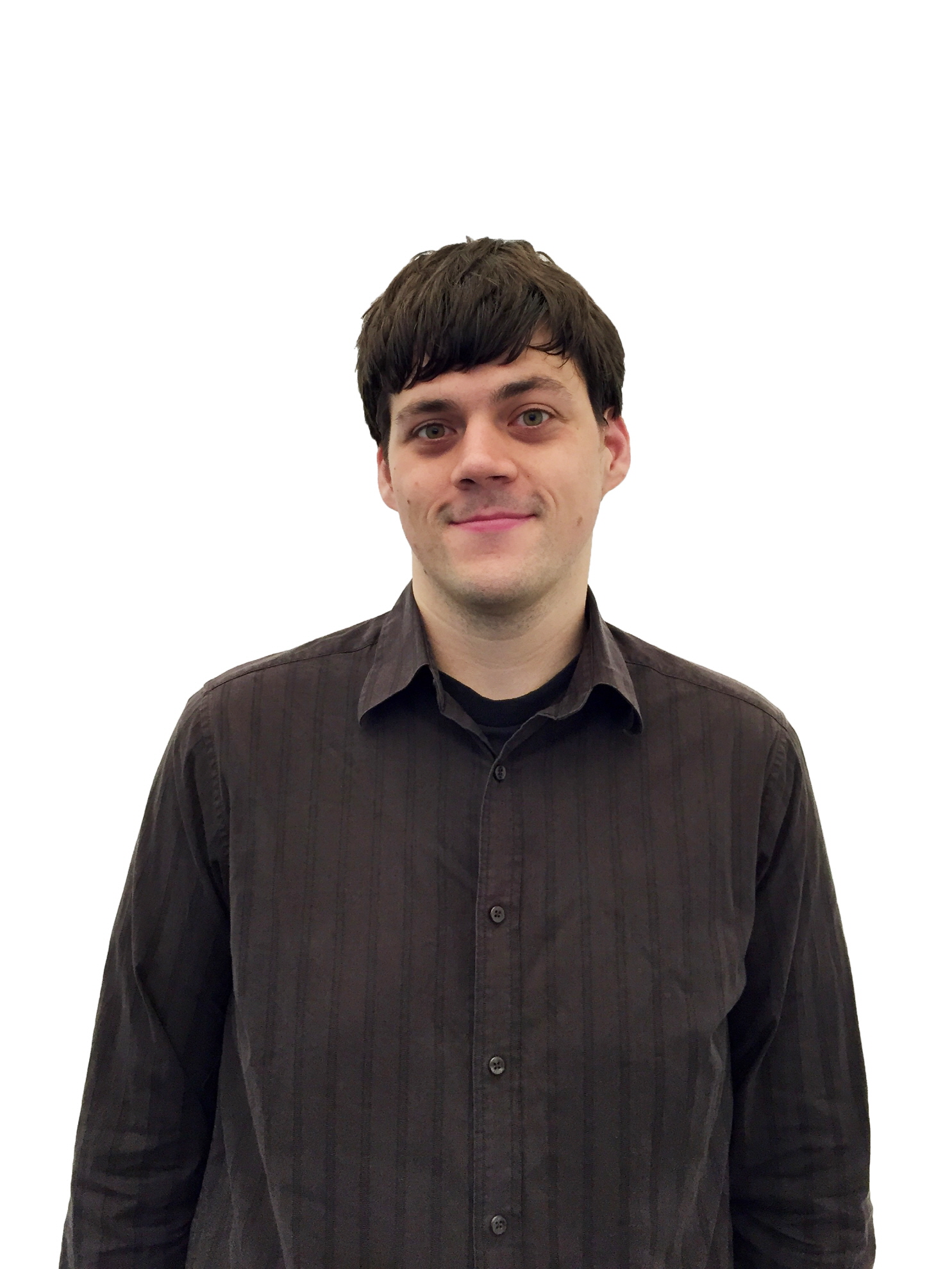[Herald Interview] First rock band to play Pyongyang lights up Jeonju film fest
Director, Laibach come to South Korea with concert documentary
By Kevin Lee SelzerPublished : May 4, 2017 - 15:10
JEONJU, North Jeolla Province -- The Jeonju International Film Festival invited a few guests with an interesting perspective this year -- the first foreign rock band to perform in North Korea and the team that documented the occasion.
“We had the feeling that they were pretty tense about having us here,” Morten Traavik, director of documentary musical “Liberation Day,” says of the festival organizers to The Korea Herald. “We really have the clear feeling that they are a little bit on edge.”
Traavik came to Jeonju with Slovenian rock band Laibach, who must be used to putting people on edge by now.
The original incarnation of the band was formed in 1980 amid the fall of Yugoslavia and its dictator Josip Broz Tito. According to the film, the band is a child of Tito’s Yugoslavia, and has been an orphan since its death.
“Laibach from its beginning has been very fascinated by highly militarized societies,” explains Luka Jamnic, who plays synthesizer for the band that has long employed striking dystopian visuals of oppressive uniformity.
In 2014, Traavik directed the music video for Laibach’s “The Whistleblowers.” By that point he had already been to North Korea several times for various cultural exchange projects. After working with the band, the Norwegian director says, “The way I see it, how could I keep North Korea and Laibach apart any longer?”
“It would be a sin not to try to put them together,” he adds.
“We had the feeling that they were pretty tense about having us here,” Morten Traavik, director of documentary musical “Liberation Day,” says of the festival organizers to The Korea Herald. “We really have the clear feeling that they are a little bit on edge.”
Traavik came to Jeonju with Slovenian rock band Laibach, who must be used to putting people on edge by now.
The original incarnation of the band was formed in 1980 amid the fall of Yugoslavia and its dictator Josip Broz Tito. According to the film, the band is a child of Tito’s Yugoslavia, and has been an orphan since its death.
“Laibach from its beginning has been very fascinated by highly militarized societies,” explains Luka Jamnic, who plays synthesizer for the band that has long employed striking dystopian visuals of oppressive uniformity.
In 2014, Traavik directed the music video for Laibach’s “The Whistleblowers.” By that point he had already been to North Korea several times for various cultural exchange projects. After working with the band, the Norwegian director says, “The way I see it, how could I keep North Korea and Laibach apart any longer?”
“It would be a sin not to try to put them together,” he adds.

“It’s such a wild and very convincing and very appealing idea that you don’t hesitate,” vocalist Mina Spiler tells The Korea Herald about Laibach’s response to the proposal.
“Liberation Day” documents Traavik and Laibach in North Korea, with their time there mostly spent on preparing the venue, running through sound checks and getting the act approved by the many censors.
According to the director, however, his contacts in North Korea took a lot more convincing in the year that preceded.
“If you bring Laibach in, it will get massive attention,” the director said in outlining his pitch to North Korean officials. “It will be like an advertisement showing quite a lot of people that when you can do something like this, then maybe you can do other stuff as well in the field of cultural exchange and cultural collaborations.”
He was right about the attention. When it was announced Laibach would play a concert in Pyongyang on Aug. 15, 2015, the holiday celebrating Korea’s liberation from Japan, it was covered, and lampooned, in headlines and by media around the world, including in a lengthy segment on John Oliver’s “Last Week Tonight” shown near the beginning of the documentary.

The bigger picture, according to the director, is that exchanges like this can lead to what North Korea really seeks: validation and legitimization as a state. And his role in that is what Traavik has been most criticized for.
His response to critics is simple. He “absolutely” supports the legitimization of North Korea and the Kim Jong-un regime. “I believe that North Korea needs to be recognized and taken into the normal community of nations as a state,” he emphasizes, calling the international condemnation of and sanctions on North Korea “counterproductive.”
“I support reform, not revolution, or enforced revolution ... (reforms) in the way that China has reformed,” the director makes clear, before pointing to the track record of Western powers removing the “a------ on top” as not working well.
He doesn’t ignore the reality of the North though, saying, “It’s extremely easy to go to North Korea and get your prejudices confirmed, because all this -- military parades, the prison camps -- it’s there. It’s true. Of course it’s true.”
Yet what sets apart “Liberation Day” among other documentaries on North Korea -- other than its largely positive tone -- are the human interactions. The director and band insist that contrary to expectations many have, their experiences were authentic and unorchestrated, and the footage was never censored or reviewed by officials there.
“When it comes to this ‘Truman Show’ myth about North Korea -- I’ve never had the feeling that daily life there is orchestrated for me. Of course, a lot of public life is orchestrated,” Traavik says, referring to the parades and school performances.
“(North Korea) is still one of the truly different places in the world left.”

If the documentary shows any biases, the director would say that other documentaries on the North are just as biased. “You should trust nobody talking about North Korea, because everyone has his own agenda. Doesn’t matter what side you’re on.”
The documentary musical is a fun experience that moves quickly, but has relatively little to say on the tense topics concerning the North.
“North Koreans themselves feel that we have shown what happened in a truthful way, but also the people here (in Jeonju) feel that we are showing what is happening in a truthful way. And we do,” the director says.
To quote a North Korean official’s review of the film from a recent trip, it’s “more or less acceptable.”
As for reviews of the concert itself, take it from one North Korean in attendance, “There are all kinds of music. Now we know there is this kind of music too.”
The final screening of “Liberation Day” at the Jeonju film fest is at 2:30 p.m. on Saturday. The group heads next to Tel Aviv, where the film will have its Israeli premiere at the DocAviv Film Festival and the band will perform -- despite a popular boycott on performing in Israel led by Pink Floyd’s Roger Waters -- on May 12.
By Kevin Lee Selzer (klselzer@heraldcorp.com)









![[Today’s K-pop] BTS pop-up event to come to Seoul](http://res.heraldm.com/phpwas/restmb_idxmake.php?idx=644&simg=/content/image/2024/04/17/20240417050734_0.jpg&u=)
![[Graphic News] More Koreans say they plan long-distance trips this year](http://res.heraldm.com/phpwas/restmb_idxmake.php?idx=644&simg=/content/image/2024/04/17/20240417050828_0.gif&u=)






![[KH Explains] Hyundai's full hybrid edge to pay off amid slow transition to pure EVs](http://res.heraldm.com/phpwas/restmb_idxmake.php?idx=652&simg=/content/image/2024/04/18/20240418050645_0.jpg&u=20240419100350)

